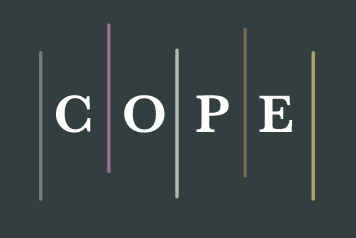The Role of Translation in the Development of Scientific Knowledge in the Premodern Islamic World
DOI:
https://doi.org/10.58355/maqolat.v3i1.120Keywords:
Translation Movement, Islamic Science, Ptolemy, Cross-Cultural ExchangeAbstract
This paper examines the profound impact of the translation movement on the development of scientific knowledge in the premodern Islamic world, focusing on the Abbasid Caliphate (8th to 10th centuries). The establishment of the "Bayt al-Hikmah" (House of Wisdom) in Baghdad under Caliph Al-Ma'mun (d. 933) played a crucial role in transferring scientific and philosophical knowledge from Greek, Persian, and Indian sources into Arabic. These translations went beyond mere replication; Islamic scholars engaged critically with the source material, adding commentaries and introducing refinements. This dynamic intellectual activity led to significant advancements in key scientific disciplines, including astronomy, medicine, and mathematics.
In astronomy, the translation of Ptolemy’s "Almagest" helped shape Islamic astronomical thought, leading to advancements by scholars such as Al-Battani (d. 929) and Ibn al-Haytham (d. 1040). In medicine, the translation of the "Corpus Hippocraticum" and Galen's works provided the foundation for a comprehensive Islamic medical tradition, with Ibn Sina’s (d. 1037) "The Canon of Medicine" becoming a seminal text for centuries. In mathematics, the translation of Brahmagupta’s "Brahmasphuta Siddhanta" by Al-Khwarizmi (d. 850) revolutionized algebra and influenced global mathematical thought. The translation movement catalyzed intellectual growth, fostering cross-cultural exchanges that shaped both Islamic and global intellectual traditions. This paper highlights the essential role of multilingualism and translation in preserving, expanding, and disseminating scientific knowledge across cultures.
Downloads
References
Adamson, Peter. (2005). (trans.) "On First Philosophy" (Al-Kindi, Yaqub ibn Ishaq Fī al-Falsafa al-Ūlā). In Medieval Islamic Philosophical Writings, ed. by Muhammad Ali Khalidi, Cambridge University Press.
Al-Khwarizmi, M. ibn M. (847). Kitab al-Jabr wal-Muqabala.
Al-Qifti, Jamal al-Din. Ta'rikh al-Hukama (History of the Philosophers), Cairo: al-Matba’ah al-Kubra, 1903.
Al-Razi, (1996). Kitab al-Hawi. Translated by Savage-Smith, E.
Berggren, J. L., & Jones, A. (2000). Ptolemy’s Geography: An Annotated Translation of the Theoretical Chapters. Princeton University Press.
Brentjes, S. (2008). Islamic Mathematics and Astronomy. Leiden: Brill.
Mathematics and the Sciences in Islamic Societies. Princeton University Press.
Mathematics, Astronomy, and Medicine in Islamic Civilization. Routledge.
Teaching and Learning the Sciences in Islamicate Societies (800-1700). Brepols.
Burnett, Charles. (2005). Arabic into Latin in the Middle Ages: The Translators and their Intellectual and Social Context. London: Variorum.
Arabic Medicine in the Latin West.
Dallal, A. (2010). Islam, Science, and the Challenge of History. Yale University Press.
Fibonacci, L. (1202). Liber Abaci.
Gibb, H.A.R. Studies on the Civilization of Islam. London: Routledge, 1962.
Gutas, D. (1998). Greek Thought, Arabic Culture: The Graeco-Arabic Translation Movement in Baghdad and Early Abbasid Society (2nd–4th/8th–10th centuries). London: Routledge.
Ibn Nadim. Al-Fihrist. Cairo: Dar al-Ma'arif, 1970.
Ibn Sina, Al-Qanun fi al-Tibb. Translated by Lindberg, D. (2008).
Khan, A. A. (1984). Islami Uloom-o-Funun Ki Tarraqi. Lahore: Islami Publications.
Lindberg, D. C. (2008). The Beginnings of Western Science. University of Chicago Press.
Lyons, Jonathan. The House of Wisdom: How the Arabs Transformed Western Civilization. New York: Bloomsbury Press, 2009.
Manfred, Ullmann. (1978). Islamic Medicine. Edinburgh University Press.
Meyerhof, M. (1931). “Hunayn Ibn Ishaq and His Place in History.” Osiris, 5(1), 48-132.
Meyerhof, M. (1931). Studies in Medieval Arabic Medicine: Theory and Practice. Oxford University Press. “Hunain Ibn Ishaq and His Place in the History of Science.” ISIS, 23(1), 68–98.
Rafi, M. (2019). Algebra Kay Aghaaz Mein Islami Uloom Ka Kirdar (The Role of Islamic Sciences in the Beginning of Algebra). Lahore: Urdu Science Publishers.
Sabra, A. I. (1987). The Appropriation and Subsequent Naturalization of Greek Science in Medieval Islam: A Preliminary Statement. History of Science, 25(3), 223-243. The Optics of Ibn al-Haytham: Books I-III. Cambridge University Press. (2003). Science and Philosophy in Medieval Islamic Civilization. Variorum Reprints.
Saliba, G. (2007). Islamic Science and the Making of the European Renaissance. Cambridge: MIT Press.
Savage-Smith, E. (1996). Islamic Culture and the Medical Arts. National Library of Medicine. Islamic Medical Texts and Hospitals in the Medieval World.
Sunan Ibn Majah, Hadith 224.
Toomer, G. J. (1996). Ptolemy’s Almagest. Princeton University Press.
Downloads
Published
How to Cite
Issue
Section
License
Copyright (c) 2025 Khalid Hussain Mir, Md. Rafique Anjum

This work is licensed under a Creative Commons Attribution 4.0 International License.






















